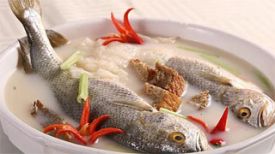
According to statistics, currently over 80% of Chinese residents have insufficient intake of vitamin B1 and vitamin B2, and there is also a general lack of vitamin A and vitamin D.
There are so many vitaminsWhat effects can it have on our immune system?
What are the symptoms of vitamin deficiency?
How should we supplement it?
Vitamins are divided into
Fat soluble vitamins and water-soluble vitamins
Fat soluble vitamins
Insoluble in water but soluble in fats and organic solvents, it can be absorbed by the human body with fat and stored in the body. These types of vitamins can be stored in large quantities in the body, mainly in the liver, and excessive intake can lead to poisoning.
Including: Vitamin A, Vitamin D, Vitamin E, Vitamin K.
Dry eyes and peeling skin
Lack of vitamin A
Normal vision, growth and development, and epithelial tissue growth all rely on vitamin A. Lack of vitamin A can lead to rough and dry skin, as well as night blindness and dry eye disease.
The per capita daily intake of vitamin A in our country is about 476 micrograms, and the Chinese Dietary Guidelines 2023 recommend a daily intake of 800 micrograms of vitamin A.
What factors can lead to vitamin deficiency in the body?
1. Electronic products: Vitamin A is related to the resistance and repair ability of the eye mucosa and skin. Continuous exposure to electronic devices such as computers and mobile phones can consume a significant amount of vitamin A in the body.
2. Zinc deficiency: Zinc participates in the process of vitamin A flowing from the bloodstream into the liver and retina. Once zinc deficiency occurs, vitamin A metabolism is abnormal and cannot be fully utilized and directly excreted from the body, leading to night blindness, retinopathy, and optic neuritis.
3. Disease impact: Digestive system diseases can affect the absorption of vitamin A.
What foods can supplement vitamin A?
The recommended daily intake of vitamin A is 800 micrograms.
One type of food rich in vitamin A is animal liver, such as pig liver, chicken liver, and sheep liver.
Another type is vegetables and fruits that are rich in carotenoids, such as carrots, spinach, tomatoes, kale, chili peppers, oranges, etc.
Muscle soreness and joint stiffness
Lack of vitamin D
Vitamin D is a promoter of calcium, which can lock in calcium in the bones and prevent calcium loss. And its lack often leads to osteoporosis or frequent fractures; Muscle weakness; Frequent anxiety, depression, and other conditions.
According to national epidemiological studies on vitamin D, 86% of the population in China lacks or lacks vitamin D levels.
Excessive sun protection is the enemy of vitamin D
The simplest way to supplement vitamin D is to bask in the sun. About 90% of vitamin D in the human body is converted subcutaneously after skin exposure to ultraviolet radiation.
But now when people go out, they are fully equipped with sunscreen, umbrellas, masks, sleeves, etc. Excessive sun protection can affect the production of vitamin D.
It is recommended to have 15-20 minutes of unprotected mild sun protection every day.
What foods can supplement vitamin D?
The recommended daily intake of vitamin D is 400 micrograms, and it is recommended to increase it to 600 micrograms for people over 65 years old.
Foods with high levels of vitamin D are preferred for deep-sea fish such as tuna, cod, salmon, as well as mushrooms, animal liver, milk, and egg yolks.
In addition, outdoor exercise time can also be increased.
Muscle weakness and lack of concentration
Lack of vitamin E
Vitamin E plays an important role in maintaining normal immune function, promoting hormone secretion, and maintaining skin cell activity.
What factors can lead to vitamin deficiency in the body?
1. Bad dietary habits. Irregular and imbalanced diet can lead to a lack of vitamin E in the body
2. Gastrointestinal diseases. If the gastrointestinal tract suffers from certain intestinal diseases, it can lead to a decrease in absorption and digestion ability, resulting in a lack of vitamin E.
What foods can supplement vitamin E?
The recommended daily intake of vitamin E is 200-300 micrograms.
The main source of vitamin E in daily diet is vegetable oil. In addition, barley, oats, rice bran, and nuts are also high-quality sources of vitamin E.
Water soluble vitamins
Soluble in water, except for vitamin B12, other water-soluble vitamins are hardly stored in the body and are mostly excreted through urine.
Including: Vitamin B1, Vitamin B2, Vitamin B6, Vitamin B12, Vitamin C, Pantothenic acid, Folic acid, Niacin, and Biotin.
Long acne and oral ulcers
Lack of vitamin B
The vitamin B we often refer to is actually a large family of vitamins, mainly including vitamin B1 B2、B6、B7、B9、B12、 Niacin, pantothenic acid, etc.
The function of vitamin B is to participate in energy metabolism and help the body convert the food it eats into energy. Due to the overly refined diet of Chinese people, there is a severe deficiency of B vitamins.
What factors can lead to vitamin B deficiency in the body?
1. Always being a vegetarian and not eating enough meat. Most vitamin B12 comes from fish, poultry, meat, eggs, and milk.
2. Stay up late. Staying up late keeps the body in a state of continuous depletion, with vitamin B1, which helps regulate the nervous and gastrointestinal systems, being the most severely depleted.
What foods can supplement vitamin B?
Vitamin B1: Black rice, oats, buckwheat, red beans, black beans and other coarse grains are the main sources of vitamin B1.
In addition, seed foods such as sesame, almonds, and peanuts are also rich in vitamin B1, which can be consumed in small quantities every day.
Vitamin B2: Drinking 300 grams of milk per day can effectively supplement vitamin B2, and animal foods such as egg yolks, animal liver, and beef should also be consumed in moderation.
The vitamin B2 content in dark green leafy vegetables is generally higher than that in light colored vegetables. You can choose according to your own preferences.
Fatigue, gum bleeding
Lack of vitamin C
Vitamin C, also known as ascorbic acid, plays an important role in enhancing the body's immunity and anti infection ability. If you frequently catch a cold, have bruises from moving around, have wounds that heal, or have a very long recovery time during the changing seasons, your body may lack vitamin C.
What are the factors that lead to vitamin C loss?
1. Water: Vitamin C is a water-soluble vitamin that is more prone to loss when in an aqueous solution state. When cleaning vegetables, vitamin C will be lost with water from the incision; When blanching vegetables, they will dissolve in water and cause losses.
2. Heat and light: Under cooking methods such as blanching, steaming, and frying, vitamin C in vegetables will be lost, and the higher the temperature, the more vitamin C will be lost.
3. Salt: Adding salt during cooking can partially destroy vitamin C in vegetables, and the more salt added, the greater the loss of vitamin C in vegetables.
4. Cigarettes: Harmful ingredients such as tar in smoke can consume a large amount of vitamin C.
What foods can supplement vitamin C?
The preferred dietary supplement for vitamin C supplementation is to eat more vegetables and fruits. Common fruits and vegetables have high levels of vitamin C. It is recommended that adults consume around 100 milligrams of vitamin C per day, which is approximately equivalent to 2 kiwifruit, 10 strawberries, and 1 plate of broccoli.


